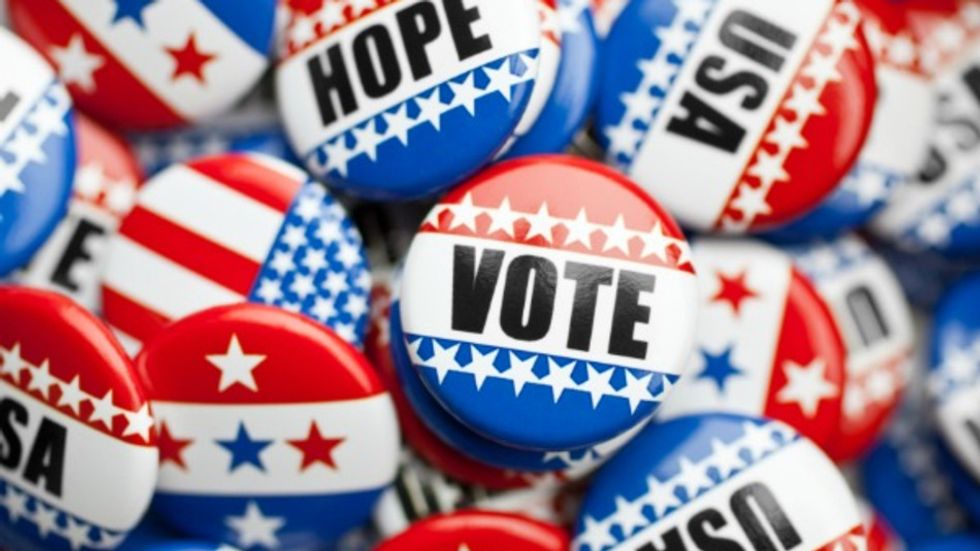When you're 63 years old, you have to recycle your jokes every once in a while. I assume that's why my dad makes the same joke every time he sees someone in a t-shirt. It doesn't matter what the t-shirt is supporting. He will make the same joke whether you're repping TCU (go Frogs), the Boston Red Sox, The Beatles, or even his favorite team, the Green Bay Packers. Any time my dad encounters someone sporting the gear of their favorite anything, his muscle memory kicks in and his instincts take over, and he reflexively reacts to the situation at hand by saying “Oh no, you didn't pay money for that shirt, did you?"
About 10 percent of the time, people laugh. Okay, 10 percent of the time I laugh. Innocent strangers who have never fallen victim to hearing my dad repeating the same joke several times a week for 20 years actually find it pretty amusing the first time. They take it in stride, laugh about it and jokingly banter about sports or music or whatever my dad playfully insulted. Even though these people love these things, they have the good sense and spirit to laugh at themselves. They understand that their affiliations with sports, schools or bands shouldn't be so consuming that it causes hostilities in their daily lives. But what about their affiliations with politics? Can they set aside their differences and laugh about those too? My dad recently found out the answer.
He works at a department store here in Austin, Texas in the most conservative part of the most liberal city in the most conservative state in America. Keep Austin weird and what not. Today he told me a story about an interaction he had a few months ago, while Wendy Davis and Greg Abbott were deep into their campaigns for Governor of Texas. Long story short, a couple walks into the store, my dad greets them, looks at the man and his Wendy Davis t-shirt, and (of course) asks the man if he paid money for that shirt. Without even pausing to respond, the man and his wife turn immediately around and storm directly back out of the store.
Honestly, I'm sure my dad didn't even think about the sentence before it came out of his mouth. He didn't mean it as a serious stab at this man's political opinion, but they took it that way. Where people can joke about music or sports or movies they like, they are almost never as willing to joke about their political opinions. So why do we take politics so seriously?
Why is it that with all the endless topics of debate in today's society, politics have to be the most polarizing? Our younger generation receives so much criticism from adults for not embracing political activism and for exhibiting a general sense of apathy about the whole thing. We're less likely to vote, less likely to even register, and less likely to be informed about political issues. But has anyone ever asked us why? Personally, I don't get involved with politics because everyone I've seen who is involved is generally unpleasant about it. Asking someone about their political opinions immediately puts them in defensive mode as they prepare to defend their beliefs to you (usually pretty aggressively), and it's just not a discussion I want to have. Political conversations have a higher tendency to turn into arguments, even though both sides know no one is going to change their mind.
When my sister openly supports the Baylor Bears, even though I am thoroughly convinced (rightly) that the TCU Horned Frogs are infinitely better, I know nothing I say is going to sway her opinion. I just let her live her life with her wrong opinion, and that's that. We agree to disagree. Why is it that we behave differently when it comes to politics? No matter how right you think you are, you cannot force someone else to believe it. In order to have a real conversation about politics, when someone shares their beliefs with you, listen. Hear what they're saying, and take it into consideration. Even if you don't agree with it, tell them you respect their opinion and move on. Aristotle said, "It is the mark of an educated mind to entertain a thought without accepting it."
I think a lot of political apathy among young adults could be eradicated if politics could be a less closed-minded topic. If we were encouraged to learn about the world for ourselves as we grow up and eventually form our own opinions, rather than to accept the opinions that are taught to us (mostly by our parents and their like-minded friends), young people would probably feel more obligation to be politically active. Instead of telling each other what's right, we should talk about it, learn from each other and respect our differences the same way we do in all other aspects of life.

















